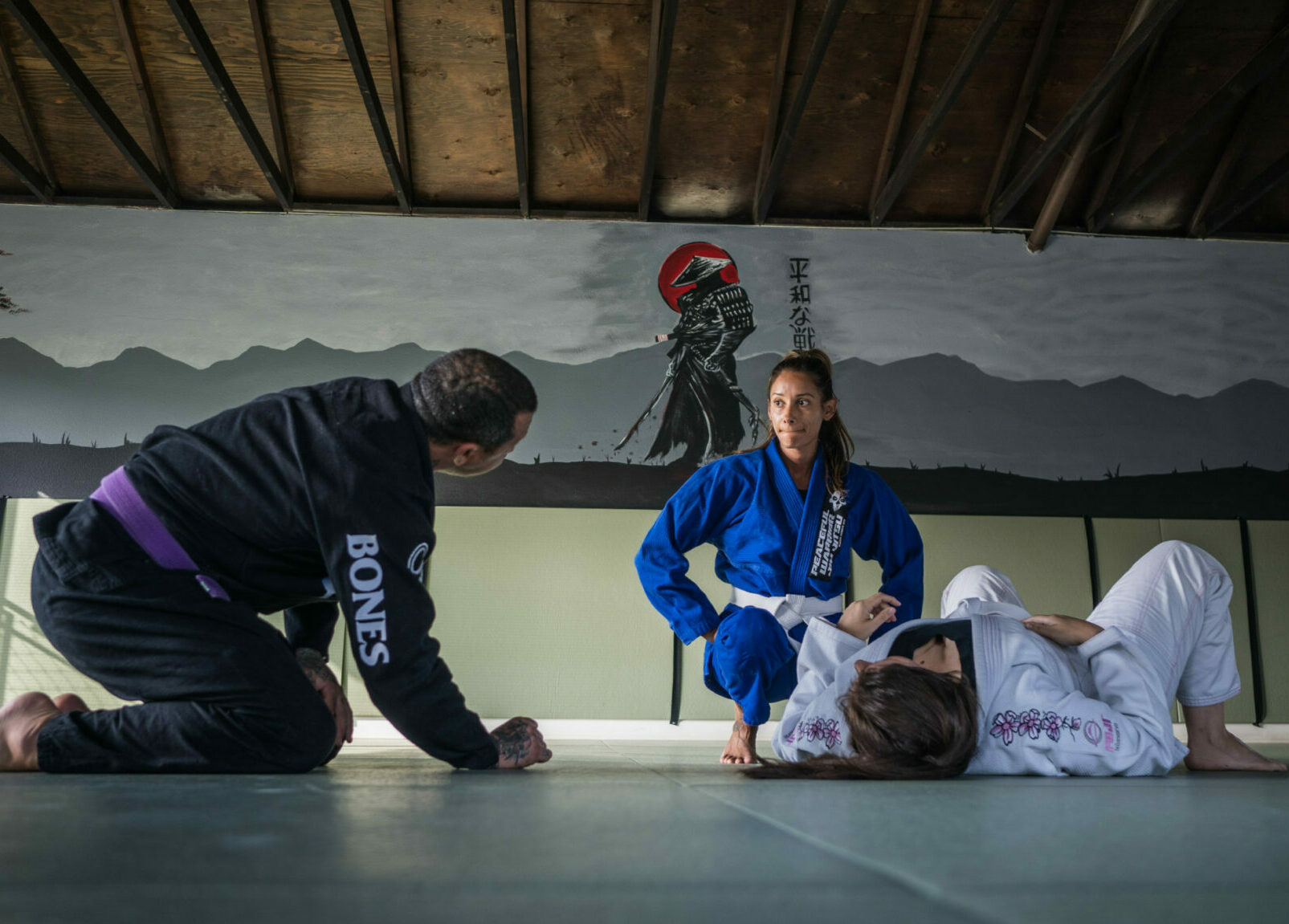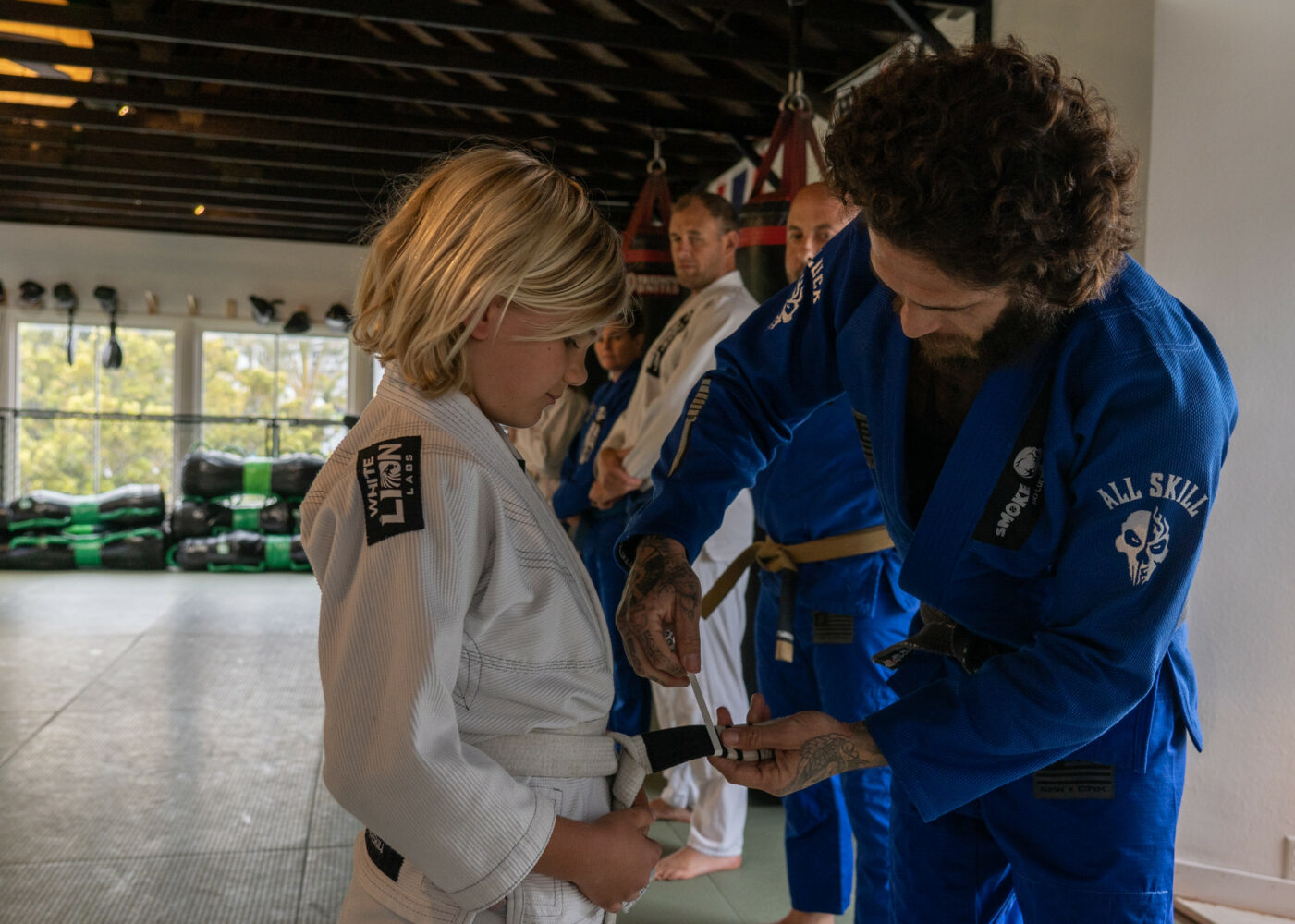Kids Jiujitsu; More Than Just an Activity.
Written By Chris Stipp
As a parent, it is typical to teach your child not to hit or fight, but while the advice is traditional and somewhat conventional, is it realistic? With nearly 25% of children being bullied, it seems almost unfair to teach them ways to be defenseless. Now, that doesn’t mean condoning rage and violence.
Instead, favor a practiced and time-honored approach through martial arts, kid’s Jiu Jitsu especially Brazilian Jiu Jitsu is about protection and respect.
Students do not merely learn how to defend themselves from an attacker; they learn respect for their skills and how to use them appropriately and effectively. However, beyond the physical training and agility, students learn at least ten life-skills that will contribute to healthy growth and development.
Self-Defense
The first goal of any martial arts training is self-defense. However, Brazilian Jiu Jitsu is unique in its real-world application. Most physical confrontations, especially those started by untrained fighters, will end up on the ground, leaving potential victims vulnerable, but this fighting style takes the perceived disadvantage and turns it into a strength through special techniques.
-
Grappling
-
Submission tactics
-
Takedown strategies
-
Traditional wrestling maneuvers
Healthy Habits
As adults, it is easy to understand how stress plays into our daily lives, but do you recognize the same type of stressors in your child’s life? Kids also deal with relationship struggles and being overworked. Unfortunately, children are also susceptible to depression and anxiety. Learning a martial art can help to reduce stress and anxiety, while simultaneously promoting healthy behaviors and habits, such as exercise.
Humility
Another benefit of Kid’s Jiujitsu is the teaching of humility. One of the critical components of any martial art is learning how to be humble in both victory and defeat. As part of a community of students, your child will learn how everyone works toward the betterment of the whole.
Confidence
As a fighting style, Jiu Jitsu is challenging and requires focus and sustained discipline. For those who stick with the practice, confidence is a natural side effect. The push to master movements and think through attacks leads to a boost in self-esteem and awareness.
Practice and repetition alone are enough to develop mental clarity in stressful situations, which leads to the development of confidence.
Respect
Our Kids Jiujitsu training will also expose children to individuals from all walks of life. Children who only experience social situations with those from similar backgrounds can develop biases and stereotypes, which may lead to disrespect and often confrontation. However, as our classes are open to everyone, children will meet and work with people who come from varying backgrounds.
Friendship
Friendship is a natural progression in training. While it may seem strange that students who are pitted against one another in sparring sessions would be friends, the mutual struggle and practice lead to commonality and community. Jiu Jitsu also teaches children to face the unknown with confidence, which means they are often more willing to introduce themselves to other students.
Commitment
Some martial art forms do not allow for daily practice, especially with 100% effort. However, Jiu Jitsu does allow for such practice because, during training, there is minimal risk of significant injury.
In fact, Helio Gracie, one of the founders of Brazilian Jiu Jitsu, practiced into his 90s. This martial art style is perfect for teaching commitment and dedication.
Goal Setting
The journey toward Jiu Jitsu mastery involves a lot of stepping stones. Your child will start as a white belt, learning the fundamentals before progressing through each subsequent phase in their training.
However, this bottom-up approach is an excellent way to demonstrate goal setting and the need for practice. There is a sense of accomplishment in achieving even the smallest objectives, which will help your child plan and prepare for other projects in the same way.
Focus
Another typical skill children can develop during training is focus. It is critical to pay attention to your surroundings and position while training so you can analyze the best path forward when sparring. However, this level of focus can be taken beyond training into other aspects of your child’s life, including their schoolwork, chores, sports, and relationships.
Dealing With Failure
Last, your child will inevitably experience failure during training, but they will learn that it is not the end of their journey. They will understand that failing is a part of the work. Students become empowered by failure, motivated to do better and improve their skills.
We want them to achieve great success, and a healthy relationship with failure is essential to real growth.
Kids Jiujitsu In Conclusion
Kid’s Jiu Jitsu is hugely beneficial. Students walk away from classes with increased confidence, focus and self-esteem. While some may feel that martial arts are violent, they do not understand the core philosophies guiding such training.

